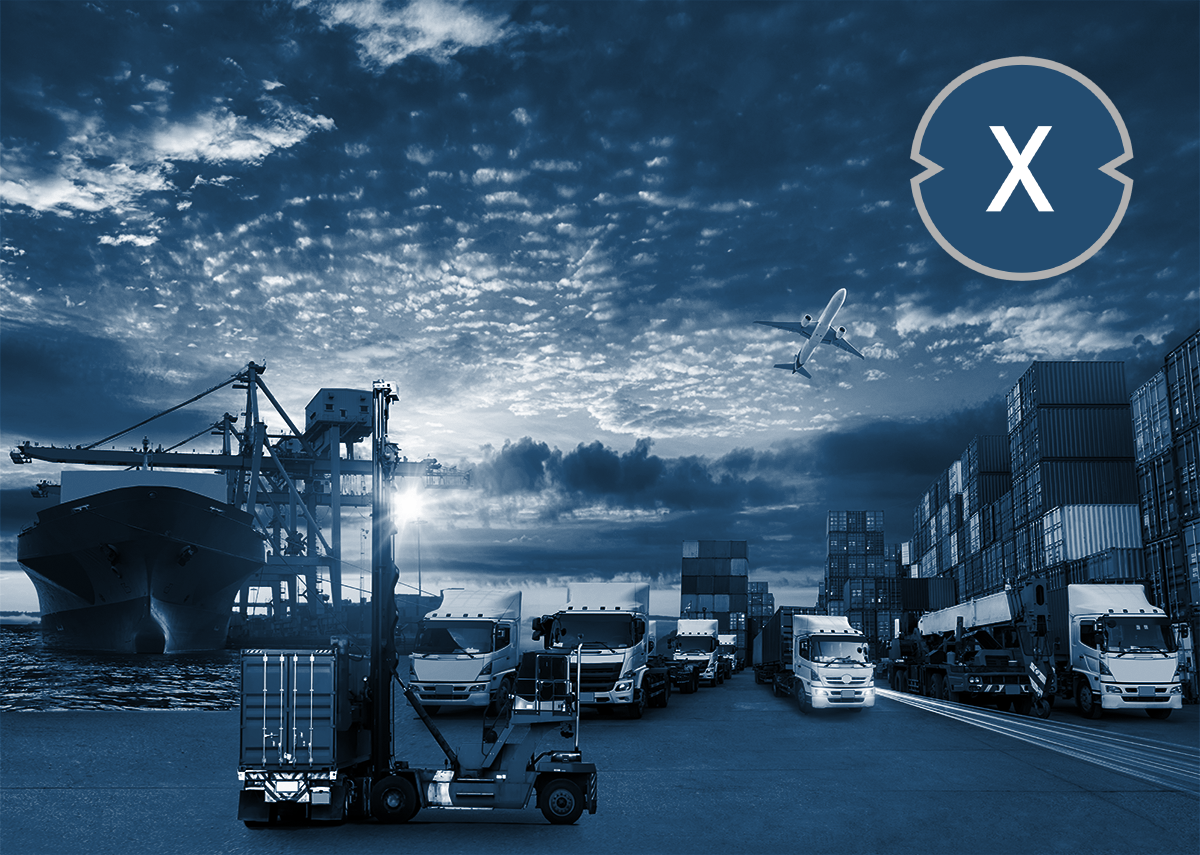Our supply chains are vulnerable
The current pandemic has made one thing abundantly clear: our supply chains are vulnerable. They are susceptible to disruptions and bottlenecks that can quickly impact the supply of goods and services to people and businesses.
This realization is not new. The question of how to optimize our supply chains and make them more resilient to future challenges has been discussed for a long time. But recent events have shown that we must act now.
We need to reinvent our supply chains – so that they are resilient to disruptions of all kinds. This requires a paradigm shift in the way we manufacture, transport, and store products.
Logistics and warehousing play a central role in this process. The challenge lies in designing supply chains to be as flexible and adaptable as possible. To achieve this, we must move away from traditional production and distribution models and find new ways to produce, transport, and store goods.
One way to achieve this is through the introduction of micro-hubs. Micro-hubs are small, flexible warehousing and distribution centers operated near customers or production facilities. They enable companies to adapt their supply chain to their customers' needs, thus preventing bottlenecks and disruptions.
Micro-hubs have several advantages over traditional logistics models
1. They offer high flexibility: Micro-hubs can be quickly adapted to customer needs. This allows companies to adjust their supply chain to current conditions at any time.
2. They reduce transport routes: Since micro-hubs are operated near customers or production sites, they reduce transport routes and therefore also costs.
3. They enable better resource utilization: Micro-hubs use resources more efficiently than traditional logistics models.
Micro-hubs are therefore a good way to future-proof our supply chain. However, there are other measures that can be taken to make our supply chains more resilient to disruptions:
- The introduction of high-bay warehouses: High-bay warehouses offer high flexibility in the storage of goods of all kinds.
- How buffer storage is changing logistics
Have weaknesses in global supply chains been uncovered?
The COVID-19 pandemic is often accused of exposing the weaknesses of global supply chains. In reality, it has only exacerbated existing problems. Supply chains were already vulnerable to disruption long before the pandemic. However, the pandemic made these weaknesses much more apparent.
The pandemic has demonstrated how dependent global supply chains are on individual countries, regions, or even cities. Some companies had to completely halt production because they relied on components or raw materials produced in virus-affected areas. Other companies had to reduce production because their employees could no longer get to work or because demand for their products suddenly plummeted.
The pandemic-related disruptions to global supply chains have led to price increases for many goods. Many companies were able to raise their prices because demand for their products remained high, while others had to increase prices to cover their rising costs.
The COVID-19 pandemic has also demonstrated how vulnerable supply chains are to political decisions. In some countries, borders were suddenly closed or trade restrictions were imposed, significantly disrupting supply chains. Political decisions can therefore lead to supply chain disruptions even without pandemic-related causes.
All these factors clearly demonstrate that existing global supply chains are no longer sufficient to meet the needs of people worldwide. The pandemic has shown us that we need to reinvent our supply chains.
Supply chain on the brink? The delivery difficulties and solutions
Is the global supply chain tearing apart due to ongoing problems and regional crises? – Image: Xpert.Digital / Iaroslav Neliubov|Shutterstock.com
We recently wrote about this: “As has been described countless times before, globalization has severely strained supply chain structures, making them vulnerable to unexpected crises beyond their control. However, it has also failed to strategically sensitize them in a relatively short time. This means that no easing of the situation along the supply chain in logistics or intralogistics is in sight for the future.”
Now is the time to act. Anyone who only acts now is late – and there are many! As early as 2012, a survey revealed that 16.2% of companies polled had no solutions or strategies for supply chain risk management. A response is urgently needed now, because the current situation is here to stay. And what many aren't even considering: the danger of a chain reaction and the potential consequences of further crises is real. Can anyone seriously say that's it?
Action is needed to ensure continued functioning supply chains
Fragile supply chains: Supply chain under pressure – Image: Xpert.Digital / Travel mania|Shutterstock.com
Global supply chains are still strained by the pandemic. Many countries have implemented numerous anti-pandemic measures, triggering significant delays in value and supply chains. For example, control and quarantine zones at logistics hubs have led to supply bottlenecks. As a result, many suppliers have been hampered in their production and have been unable to fully meet their delivery obligations. A lack of components can quickly and severely disrupt production processes. Added to this are the shortages of workers due to illness or travel restrictions.
The global supply chain situation is tense
The global supply chain situation is strained. Many companies are struggling to cover rising costs for transportation, labor, and real estate while simultaneously meeting the demand for faster delivery times. The economic situation is further exacerbated by the trade conflict between China and the US.
However, there are solutions: high-bay warehouses, densified storage hubs (DSHs), the Konbini storage system (local decentralized hubs) and micro-hubs are some options to increase supply chain efficiency and save costs.
Increase in online demand
The COVID-19 pandemic has plunged global supply chains into crisis. Many companies are struggling with shortages of materials, components, and semi-finished products. At the same time, we are seeing a surge in online demand as more and more people order from home. The ongoing uncertainty surrounding the further course of the pandemic presents many companies with an unprecedented challenge.
For a long time, supply chains were relatively stable – there were hardly any changes in terms of product variety or demand volume. However, a shift has been observed in recent years: seasonal fluctuations and unforeseen events are becoming increasingly frequent, disrupting the supply chain. The pandemic has shown us that these unstable conditions can become the norm. Therefore, we must reinvent our supply chains to be prepared for this changed reality.
Densified Storage Hubs (DSHs) are an extension of the traditional high-bay warehouse
Densified Storage Hubs (DSHs) are an extension of the traditional high-bay warehouse, increasing the storage height to create more storage space in a more compact area. DSHs offer higher storage density, enabling more efficient use of available space. This increased density also means that more goods can be stored in less time, leading to increased productivity.
Distributed storage facilities (DSHs) are frequently used in combination with combined warehouses (CLs) and/or micro-hubs (MHs). This combination allows companies to utilize their warehouse space more effectively while simultaneously increasing the flexibility and efficiency of their supply chains. Furthermore, combining different types of warehouses allows companies to reduce costs, as they no longer need separate locations for different types of storage.
Densified Storage Hubs (DSHs) are an evolutionary storage solution that offers more storage capacity in a smaller footprint. DSHs are made possible by concentrating storage space in compact warehouses with high-bay racking and the use of state-of-the-art technologies such as intelligent racking systems. This innovative storage solution offers a number of advantages over traditional storage methods, including:
- More efficient use of land and labor
- Improved inventory tracking and allocation
- Increased flexibility in adapting to changing business needs
- Reduced costs for construction, maintenance and operation
In a perfect world, high-bay warehouses (AS/RS) would be designed and built close to consumers. Reality is often different. AS/RS are frequently installed further away from customers, resulting in longer transport routes and higher costs. For this reason, corporations have begun developing DSHs – compact storage hubs that allow high-bay warehouses to be installed closer to end users.
📦 Logistics consulting for industry and mechanical engineering - for logistics managers and warehouse managers
Do you need competent support in implementing your requirements? Do you have questions about Smart Factory, Smart Logistics or digitalization?
🏬 Warehouse optimization and automation for industry, production and trade
The automation of warehouses and supply chains is an essential element of warehouse optimization. We support you in this.
🛒 E-commerce storage solutions for returns, fast shipping (same day delivery) and error-free picking
E-commerce has special requirements and competition is becoming ever stronger. It is not for nothing that e-commerce is considered the driver of changes in the market. With our digital know-how, innovative solutions and implementations are our strength.
Logistics consultants for secure supply chains and buffer storage: Use our Xpert.Plus service for your logistics consulting, warehouse planning or warehouse management needs
Xpert.Plus is a project from Xpert.Digital. We have many years of experience in supporting and advising on storage solutions and in logistics optimization, which we bundle in a large network Xpert.Plus
I would be happy to serve as your personal advisor.
You can contact me by filling out the contact form below or simply call me on +49 89 89 674 804 (Munich) .
I'm looking forward to our joint project.
Xpert.Digital – Konrad Wolfenstein
Xpert.Digital is a hub for industry with a focus on digitalization, mechanical engineering, logistics/intralogistics and photovoltaics.
With our 360° business development solution, we support well-known companies from new business to after sales.
Market intelligence, smarketing, marketing automation, content development, PR, mail campaigns, personalized social media and lead nurturing are part of our digital tools.
You can find out more at: www.xpert.digital – www.xpert.solar – www.xpert.plus


